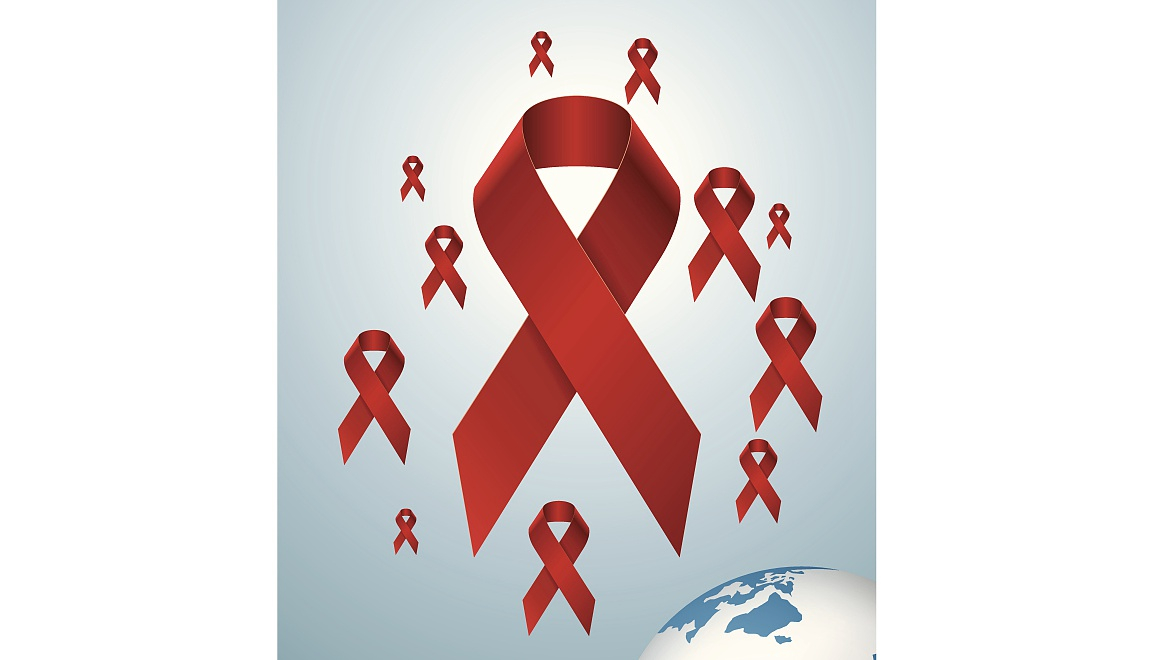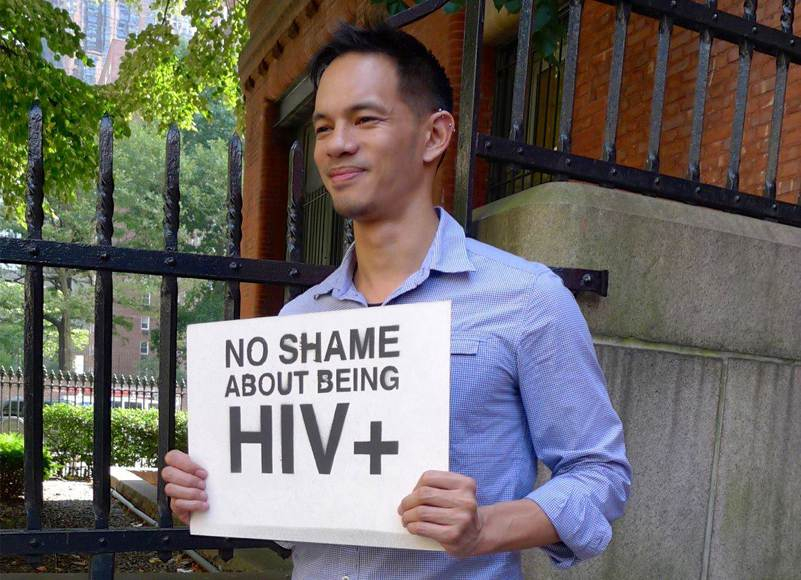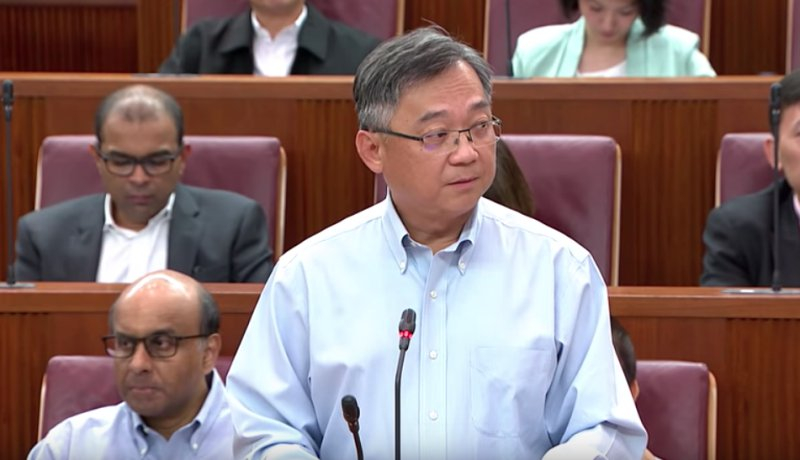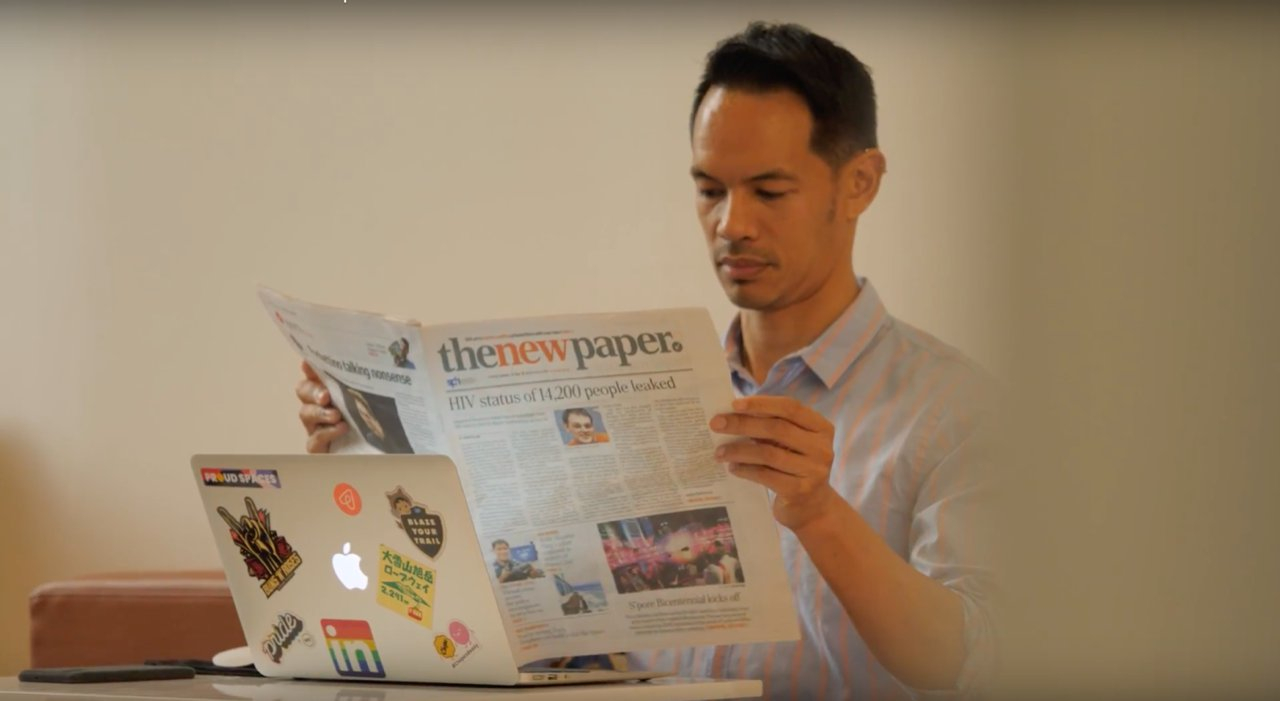
Health
22:29, 15-Feb-2019
Data leak in Singapore shines spotlight on HIV awareness
By Derek Cai

When news broke that a leak of HIV patient data in Singapore had occurred, Laurindo Garcia sprang into action almost immediately.
He reached out to Action for Aids (AFA), an NGO that serves the local community most affected by HIV, and offered help.
Garcia is the founder and CEO of Be Inclusive, a two-year-old local startup committed to eradicating discrimination in the workplace.
"What (AFA) told us is that there are many people in the community who are worried about their jobs. They're worried they're going to be fired because their HIV status is going to be made public," Garcia told CGTN.
"On top of that, there's definitely a lot of people worried about the risk of blackmail if the data becomes public, or whether people's insurance policies will be reneged," he added.
As an Australian of Filipino-descent, Garcia is no stranger to racism. And as a gay man, he also faced homophobic violence, and has been fired due to his HIV-positive status. Those experiences are a huge antecedent to his unshakeable devotion to speaking up for the voiceless.

Laurindo Garcia campaigns for Global Fund to Fight AIDS, Tuberculosis and Malaria in 2012. /Photo Credit: Rachel Ong for Be Inclusive
Laurindo Garcia campaigns for Global Fund to Fight AIDS, Tuberculosis and Malaria in 2012. /Photo Credit: Rachel Ong for Be Inclusive
Following the announcement of the leak by Singapore's Health Ministry, he drafted a pledge and rallied companies for their signatures. Sixty-four employers have supported this oath so far, from multinational corporations like U.S.-based Salesforce, to smaller local businesses like Chope.
Parties to the pledge will commit to "ensuring that HIV status alone will not be basis for dismissal, and that any employee subject to discrimination or harassment because of their HIV status will find support at that place of work, among other things," said the 45-year-old entrepreneur.
"But I'm worried that as the news fade of the data leak, the will for companies to take action will wane as well," he added.
In late January, authorities in Singapore announced that confidential information of 14,200 HIV-positive individuals, including their names and known sexual partners, have been leaked online from the republic's HIV registry.
The government discovered the leak three years ago, but did not inform the affected individuals or the general public. In a parliamentary proceeding this month, Health Minister Gan Kim Yong rejected allegations of a government cover-up.
"These were not straightforward decisions. On the one hand, there is the need to be transparent, but on the other hand, we need to consider the impact of an announcement on the affected persons with HIV," he said.

CGTN screenshot of a YouTube video showing Singapore's Health Minister Gan Kim Yong in Parliament defends the ministry's decision on why it chose not to announce a leak three years ago when it was first discovered.
CGTN screenshot of a YouTube video showing Singapore's Health Minister Gan Kim Yong in Parliament defends the ministry's decision on why it chose not to announce a leak three years ago when it was first discovered.
At the center of the scandal is an American citizen named Mikhy Brochez, and his Singaporean partner Ler Teck Siang who had worked as a doctor in the city state. Both of them have been alleged by Singapore's government as perpetrators of the leak, though Brochez has denied any wrongdoing.
The incident has sparked more awareness about the once life-threatening disease. HIV, or Human Immunodeficiency Virus, is the virus that causes AIDS. But advancement in modern medicine means HIV is no longer a death sentence, and that people living with HIV (PLHIV) can live a near-normal life.
Furthermore, individuals on suppressant medication are at virtually zero risk of spreading HIV to others.
However, unsticking the stigma and myths surrounding the virus would prove to be an uphill battle. The Infectious Disease Act (IDA) in Singapore requires PLHIV to inform all their sexual partners of their status. They could be charged for not doing so.
"Some people have reached out to me directly and told me about their concerns, they're suffering in silence and often in isolation because for many people they haven't told a single soul about their HIV status," said Garcia.

Laurindo Garcia petitions companies to not penalize employees on grounds of HIV status. /CGTN Photo
Laurindo Garcia petitions companies to not penalize employees on grounds of HIV status. /CGTN Photo
The president of AFA said in an op-ed that this criminalisation of HIV risk behavior further feeds stigma and discrimination. PLHIV are often unjustly deemed as harlots, shamed for perceived promiscuity.
"The conflation of HIV with morality relating to sexuality or sexual activity makes it difficult for the public to be well informed. Studies have shown that the stigma is driven by beliefs over personal responsibility, for example, that people with HIV brought it upon themselves," said Rayner Tan, who has been researching HIV since 2015 in one of the city's public universities.
According to Tan, while education and facts may play a role in reducing misconceptions, there are several explanations as to why the stigma around HIV may persist like grease that even facts cannot scrub away.
"Not many studies have explored HIV stigma in Singapore, but the few that have been established by Singaporeans – including medical professionals – contain quite a number of misconceptions about HIV, which reinforces the stigma," Tan said.
He added that HIV is a public health issue which requires public health attention. A healthy debate is only possible when the population begins to eschew stigma and discrimination.
"I think the media can play a role in education and debunking the myths that people only have themselves to blame for getting HIV, or that it is a gay disease. These narratives of blame only serves to exacerbate the stigma," he said.
(Cover image via VCG)

SITEMAP
Copyright © 2018 CGTN. Beijing ICP prepared NO.16065310-3
Copyright © 2018 CGTN. Beijing ICP prepared NO.16065310-3